UK and international execs outline strategies as YouTube dominates conversation at biennial event
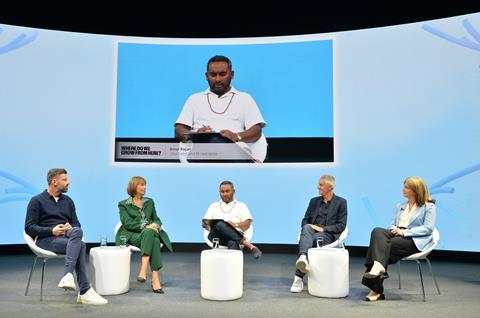
The Royal Television Society’s biennial Cambridge get-together always tends to throw up talking points of an international flavour and this year’s edition was no different.
From changing viewing habits and production groups’ expanding businesses, to the “no-brainer” of improving tax breaks and the impending effects of AI, topics at RTS Cambridge this year were varied but applicable to many markets around the world.
The rapidly expanding reach of YouTube lay at the root of many talking points, making eye-catching headlines in the process.
But the nuanced state of the market was also glaringly apparent - and it was this subject that lay at the centre of John Landgraf’s thinking, providing perhaps an optimistic tone for incumbents.
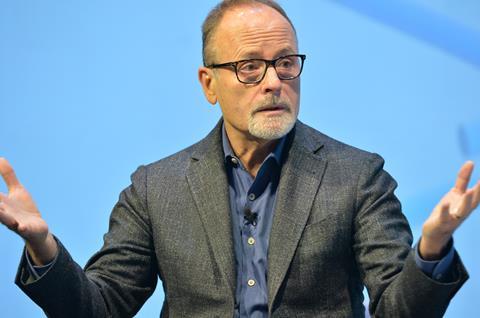
Calling out the attention economy
The FX chair - who coined peak TV long before the bubble burst - was on fine form, and pushed back against the theory that the Google-owned platform would take everybody’s lunch.
That’s not to say he didn’t clock the platform’s reach, underlining recent Nielsen data showing YouTube now has a 13% share of viewing in the US, with Disney at number two on 9%.
But Landgraf is looking to double-down on the “culture economy” rather than the “attention economy”, he said, with a focus on producing long-form content aimed to wholly engage viewers.
“Ultimately, I want to make something that is worthy of people putting their phones down to, and better yet, something that they want to watch with someone else they care about,” said Landgraf, whose recent output includes The Bear, Shōgun and Aliens: Earth.
“Look at Disney – what the most expensive consumers do with their time is go to a theme park or sports. Why do they do that? It’s because the quality of what they get from their attention in that environment is worth it.
“Now, we’re not live sports but we have to be as close to that as possible. If you compete on volume you will simply lose.”
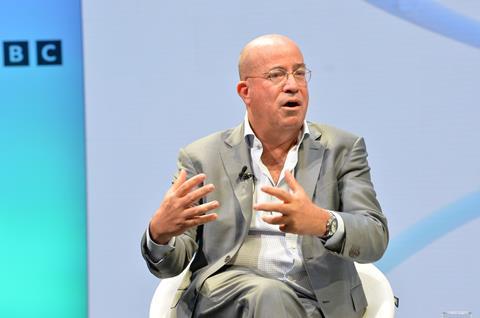
US giants eye global surge
It was a slightly different message from the US bosses of RedBird IMI and Candle Media, who talked up the potential of creating global brands that could be launched at an instant via the internet.
Former Disney and TikTok chief Kevin Mayer has something of a vested interest in this regard, with his company home to YouTube big-hitter CoComelon, but he was clear about the perils of relying on YouTube.
He said the platform provides a “unique” place in the global media arena that allows creators to monetise their content – YouTube revealed earlier this week that it had paid out $100bn to creatives since 2021 – but admitted it has “a very central ability to control media”.
YouTube can be hard to deal with at times, he continued, adding that “it might have good intentions but then it might change the algorithm and that could have unintended consequences.” The result could transform a business’s fortune overnight. “You have to be careful.”
Jeff Zucker, chief exec at All3Media owner RedBird IMI, also talked up YouTube and the creator economy – “it’s a huge part of where the world is going” - but added that the value of more traditional production models and broadcasters still held value.
“We’re still big believers in content and that’s why we made such a bet with All3Media,” he said, adding that a mixed economy would evolve. “Both will co-exist, there’s a place for traditional scripted and unscripted content,” he said, with the caveat that “patient capital” is required. “You can play in that world and in the digital economy. But you are vulnerable to slight tweaks in the algorithm - going all in on that is risky.”
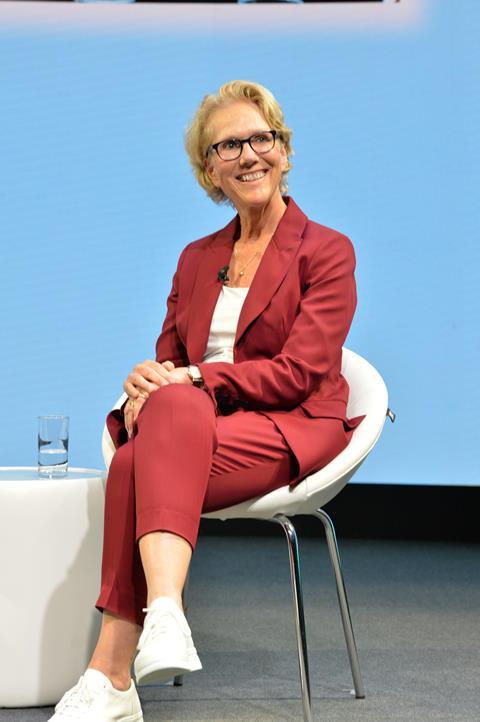
Group think
Zucker’s comments no doubt resonated with All3Media chief exec Jane Turton, who took to the stage alongside Banijay’s Marco Bassetti to discuss their respective strategies to grow in the fast-moving landscape.
Turton admitted it had become harder to profit from the traditional TV sector in the decade since she took charge, but also highlighted the emergence of new buyers.
Netflix is now All3’s biggest customer, she said, and while she noted the “massive challenges” the company’s embrace of alternative revenue streamers – be it theatre shows or placing content on YouTube – all provide opportunities for growth.
Bassetti also spoke about spinning his company’s IP into live events, while AI – which All3 owner Zucker had earlier said would “fundamentally upend everything” - is routinely being used by both companies.
But as Bassetti noted, in a cost-plus model a noticeable reduction in production costs is not always necessarily a positive.
Fundamentally, the Banijay boss added, the focus is on retaining IP and driving revenue from every vertical. “We need to become not only a production business but a media company in the fullest sense,” he added.
Turton also noted the improving US scripted landscape, with the co-production market “coming back”, but admitted that the reliance on deficit financing has extended the time it takes to recoup spending. Financial “muscle” is a must to make it work.
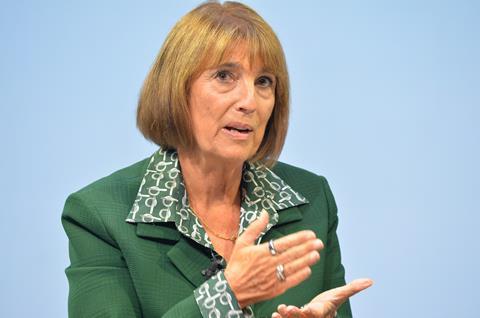
High-end push
One way to support the industry could be a significantly expanded tax break regime, something ITV chief Carolyn McCall described as a “no-brainer”, as all four public sector broadcaster bosses threw their weight behind the burgeoning campaign.
The prospect of the HETV tax breaks being expanded has gained momentum this week, with the PSBs including it on their government wish-list. McCall said the economic case is “irrefutable”, pointing out that around 25% of British dramas are currently being shot overseas as a result of the more attractive tax environment in countries such as Ireland or Hungary.
McCall added the 40% film tax credit has super-charged that industry, and “it would be a no-brainer to have the same” for shows with a budget of £1m to £3m an ep.
“So many people get their first jobs on those lower budget shows, which help start careers and grow our skills base. The government likes this and it will pay for itself. It’s about action. Just do it.”
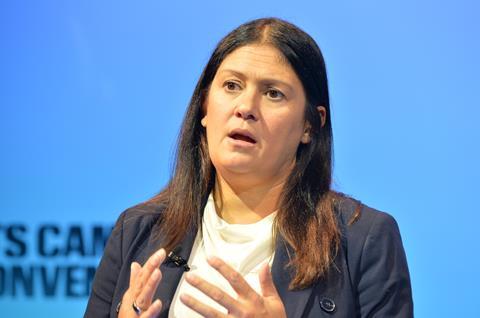
Regulation required?
Tax breaks weren’t the only topic with a regulatory flavour this week and it was the familiar Google-owned platform that again found itself at the centre of discussions.
UK culture secretary Lisa Nandy used her keynote to call for PSB content to be more prominent on YouTube, warning the government is prepared to legislate if required.
The culture secretary’s stance follows Ofcom’s Future of Public Service Media Report in July, which urged for better PSB prominence on the “increasingly important” Google-owned platform, and called for the government to consider if this should be underpinned by policy.
The regulator acknowledged ensuring public service content had priority positioning on the video-sharing platform would take “significant work” on the government’s part, as with the Media Act which enshrined PSB prominence on connected TVs and other devices.
However, Nandy insisted she is prepared to extend prominence beyond the Act.
“As video viewing moves away from broadcasters’ own services and towards third-party platforms we support Ofcom’s recommendation that public service media content should be prominent on major video sharing platforms and on fair commercial terms,” she said. “If we need to regulate, we will.”
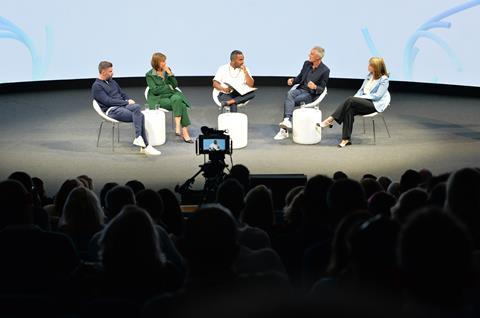
Broadcaster solidarity
Her comments resonated with PSB chiefs in the audience, who also used the RTS event to unveil a five-point plan aimed at government that is designed to safeguard their organisations’ futures.
The BBC, ITV, Channel 4 and 5 partnered with fellow public broadcasters MG Alba, S4C and STV to create the plan, which includes an enhanced tax credit system to help British storytelling prosper and a clear pathway to begin the transition to internet-delivered television.
There is also a need to focus on ensuring digital prominence of PSM content across all devices and platforms; an assurance that impartial news can be found on the platforms that are most used by young people; and greater freedom to collaborate more effectively.
Full details of the public service broadcasters’ wish-list were outlined here, in an exclusive op-ed, in which the traditional powerhouses called for greater support to avoid global online platforms that are “driven by profit, not purpose” coming to dominate the UK’s cultural landscape.
The message was delivered on stage by BBC director general Tim Davie, ITV chief executive Carolyn McCall, Channel 4 interim chief exec Jonathan Allan and outgoing Paramount UK president Sarah Rose.
They concluded: “Action is now urgent. PSBs could add a further £10 billion to the UK economy by 2035, according to the latest research.
“The media and entertainment sector more widely can deliver more than a quarter of the Government’s investment target for the whole creative sector. But it requires the right decisions to be taken now and the right policy to secure the growth this country needs.”








No comments yet